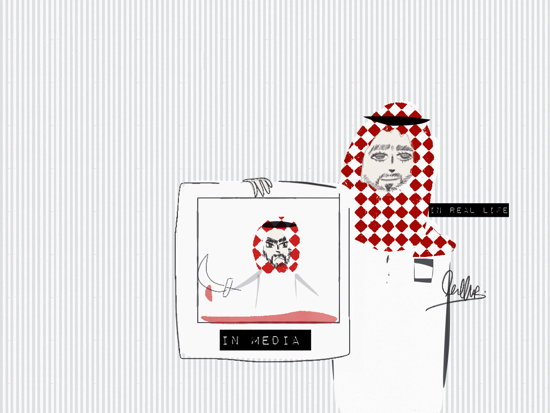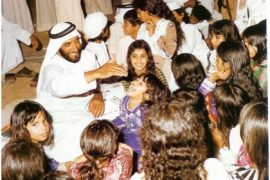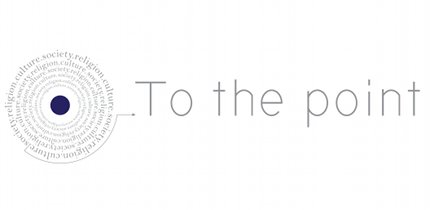Being aware of cultural appropriation and changing it to cultural appreciation should be given its importance in the Middle East. The question is, how can we convert cultural appropriation to cultural appreciation?

With the foreign media bustling about cultural appropriation and the importance of eradicating it, a series of questions emerge whenever someone discusses the topic. Do we know the meaning of cultural appropriation? And more importantly, are we aware of the times we culturally appropriate?
I ran a poll on Twitter, asking my followers whether they knew the meaning of cultural appropriation. 55% of the total votes which summed up to 108 were not aware of its definition. The following question addressed those who knew its meaning, and whether they thought it was relevant in Arab countries as well as foreign ones, or if it was only restricted to foreign countries. 78% of the 55 voters thought it also occurred in Arab countries. The last question, a more personal one, was about what their reaction would be had they stumbled upon people who culturally appropriate. Out of the 61 voters, 33% would ignore them, 30% would internally judge them, and 37% would explain why they are wrong.
The results of the poll made me realize the amount of work that must be done to sustain the awareness of this issue. As many are not aware, cultural appropriation is when members of another dominant culture adopt the elements of a culture that is followed by a minority. It is wrong to adopt the elements of a minority culture to follow a fashion trend, or for attention-grasping, or for aesthetics, while the minority is put under the stigma for being themselves and having those elements. Minority cultures should be handled with sensitivity and appreciation, not dehumanization and appropriation. Even though Arabs are not a minority, they are wrongly put under cultural appropriation.
An example is when people believe the stereotyped, dehumanized depiction of what our Arab culture looks like, such as Disney’s Aladdin—which is inaccurately portrayed by the orientalist media. We have never paid attention to the line in their opening song that says, “Where they cut off your ear if they don’t like your face, it’s barbaric, but hey, it’s home.” This is how we are misrepresented and portrayed in the minds of others, as nomadic groups who are often associated with being “terrorists,” or “brutes.” As music is influential today, we get culturally appropriated when singers use the stereotype of Arab barbarism in their music videos, such as wearing nomadic clothes and riding a camel in the middle of the desert—these ideas often generate Islamophobia.
How do we fight this malignant, easily-permeable issue? Yara Shahidi, actress and activist, once said, “Once we free ourselves from self-imposed branding, we can free those around us from the biases that prohibit us from truly exploring the beauty of human existence. I believe that in order to lessen cultural appropriation, stereotyping, and institutionalized discrimination, we must start the conversation about cultural appreciation that is inclusive of all people on all platforms.” To sustain cultural appreciation, we must understand that anything that does not belong to our culture but to another culture, one that is followed by a minority, we should not adopt loosely.
Instead of wearing someone’s culture as a costume or an accessory, we should appreciate, respect, and understand it. We must be cautious of the times we use the elements of a culture that has been dealing with many struggles, for the more we are inclusive to all cultures, the more we are globally tolerant and accepting.




فعلا من المؤسف ان دولة مليئة بما يمزيها من عادات و تقاليد، عريقة بأصولها و تراثها، يلجأ شعبها “الى “تقمص” عادات غربية! برأيي انه التأثير الغربي و قوتهم في جعل عاداتهم و لبسهم و تصرفاتهم هي مثال لشعوب العالم يرمز للتطور و الكمال، بالإضافة إلى الحرب على الإسلام و الذي من وسائلة الاستنقاص من الشعوب المسلمة بطرق غير مباشرة .. هذا الغزو يأثر علينا كشعب ينقصه الثقة بالنفس، الثقة بالعادات.. شعب ضاع عن أصله و أصبح يبحث بين الشعوب عن عادة يتخذها، كلمات يكررها، شخصية و صورة مفبركة يتقمصها ببراعة!